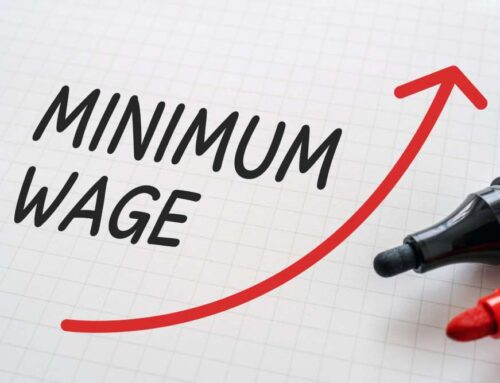Sexual Harassment in The Workplace
In recent months, the spotlight has shone on several high-profile cases of bullying and harassment. From allegations against politicians to corporate giants, the issue of workplace sexual harassment is becoming increasingly prominent in the public eye. At Barrett & Co, a leading solicitors firm in Reading, UK, we believe it’s essential to delve deeper into this critical subject. In this article, we will explore the current employment law surrounding sexual harassment, its implications, and provide guidance on preventing such incidents in the workplace. We will also touch upon some proposed changes to the law that could impact employers.
Understanding Sexual Harassment
The Equality Act 2010 offers a comprehensive definition of sexual harassment: “Someone engages in unwanted conduct of a sexual nature, and the conduct has the purpose or effect of violating the individual’s dignity, or creating an intimidating, hostile, degrading, humiliating, or offensive environment for them.”
Importantly, an employer can be held liable if an employee harasses another during the course of employment, even if it’s a single serious incident and the employer had no prior knowledge of it.
Diverse Forms of Sexual Harassment
Sexual harassment is not limited to any one form and can manifest in various ways. Men can also be victims of sexual harassment, and the victim doesn’t need to be of the opposite sex as the perpetrator. The Equality Act 2010 protects individuals from two additional forms of sexual harassment: harassment related to sex (i.e., the person’s gender) and less favorable treatment resulting from someone’s rejection or submission to harassment.
Examples of Sexual Harassment in the Workplace
Identifying sexual harassment may not always be straightforward. To help both employers and employees recognise what constitutes sexual harassment, the Equality and Human Rights Commission published a guide in 2020.
Common examples include unwanted sexual advances, physical touching, assault, inappropriate jokes, displaying explicit content, and sending sexually explicit text messages or emails. With the rise of instant messaging and workplace communication tools, it’s crucial to be aware of the potential for misinterpretation in digital exchanges.
Determining Reasonableness of the Effect
When evaluating a sexual harassment claim, the perception of the claimant, the circumstances, and the reasonableness of the effect on the victim’s dignity are key factors. The #MeToo movement has reshaped public perception of what constitutes sexual harassment, making employees less tolerant of certain behaviours. This evolving sensitivity could lead to an increasingly fine line in how tribunals assess cases.
Consequences of Failing to Address Sexual Harassment
The consequences of mishandling sexual harassment in the workplace can be severe. An employee subjected to harassment can seek redress in the employment tribunal, which may result in financial compensation, including injury to feelings. In extreme cases, tribunals can award career-long losses. Beyond the financial implications, employers should consider the potential for reputational damage, loss of contracts, and harm to their ability to attract talent.
Defense Against Sexual Harassment Claims
Defending against a sexual harassment claim requires more than blaming a rogue employee. Employers can be vicariously liable for such acts, but there is a statutory defense available if the employer can demonstrate taking reasonable steps to prevent harassment. Having a comprehensive equal opportunities policy is the first step, but it’s crucial to update and enforce it actively. This includes regular training and disciplinary actions when necessary.
Creating an Inclusive Equal Opportunities Policy
An effective equal opportunities policy is essential. It should clearly outline acceptable and unacceptable workplace behavior and provide guidance on how to raise and handle complaints. Victims of sexual harassment often fear not being taken seriously when they come forward. Employers must reassure them that their complaints will be treated promptly, sensitively, and confidentially. In cases involving senior employees, a clear path to complain to someone higher up should be available, and potential consequences must be handled with care to avoid retaliation against the victim.
Promoting a Culture of Speaking Up
Policies and attitudes toward sexual harassment should encourage a culture of speaking up. Employees need to know that allegations will be treated appropriately, with sensitivity and without adverse repercussions. Creating an environment where employees feel safe reporting harassment is essential, given the fear and reluctance that often surround these cases.
Proposed Legal Developments
The Worker Protection (Amendment of Equality Act 2010) Bill, introduced to the House of Commons in late 2022, aimed to reintroduce employer liability for harassment by third parties and impose a duty on employers to take “all reasonable steps” to prevent sexual harassment. However, concerns led to the removal of third-party liability from the Bill, and the duty was adjusted to “reasonable steps.” Employers will still need to ensure training, policies, and procedures are in place to prevent sexual harassment.
Getting Legal Support For Sexual Harassment at Work
In today’s world, understanding and addressing sexual harassment is essential for employers. Failing to address this issue can lead to legal consequences, damage to an organisation’s reputation, and harm to its ability to attract talent. To prevent sexual harassment, it’s crucial to have an effective equal opportunities policy, foster a culture of speaking up, and stay updated on proposed legal changes.
At Barrett & Co, we are dedicated to upholding the principles of equality and fairness in the workplace. If you or someone you know has experienced sexual harassment, our experienced legal team is here to provide guidance and support. We understand the complex legal landscape surrounding sexual harassment and can help you navigate it with compassion and expertise. Our commitment to justice and our extensive knowledge of employment law make us a trusted partner for those seeking redress and resolution. You don’t have to face these challenges alone; let us stand with you and work toward creating safer, more inclusive workplaces. Your rights matter, and we are here to protect them.





